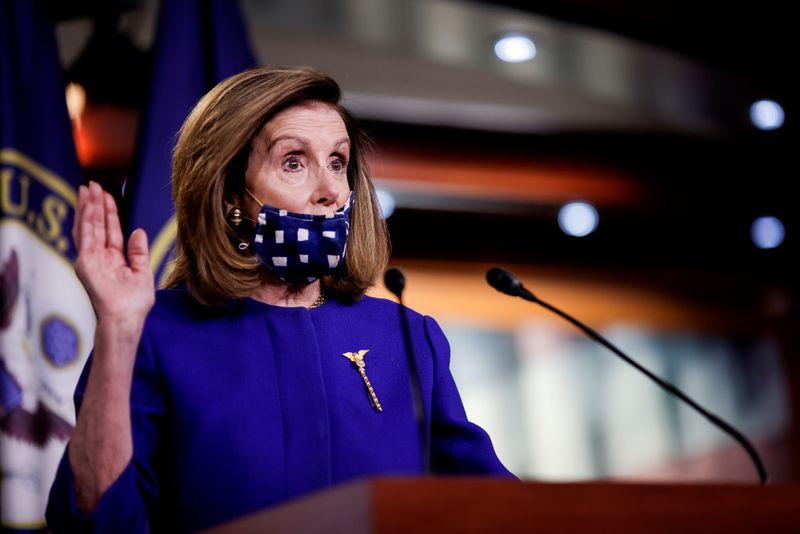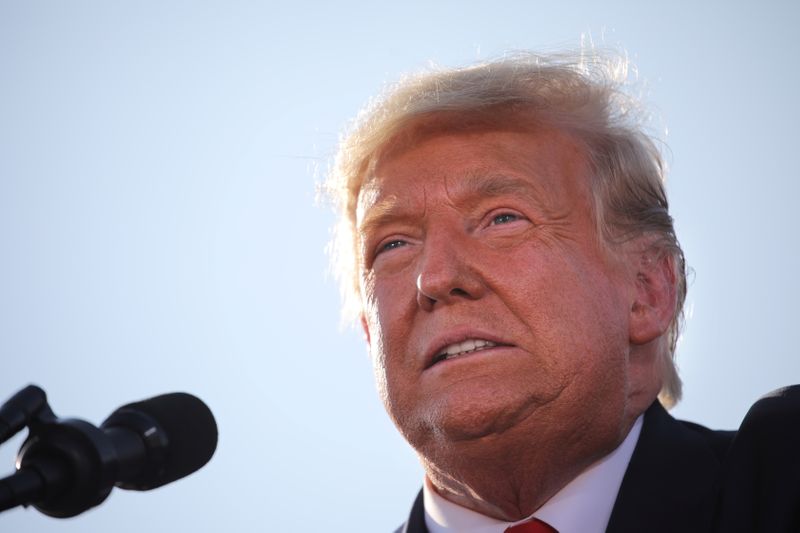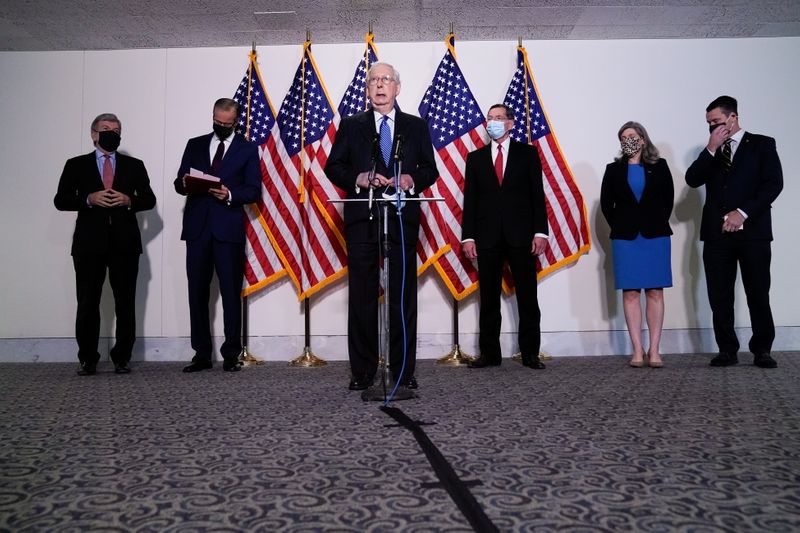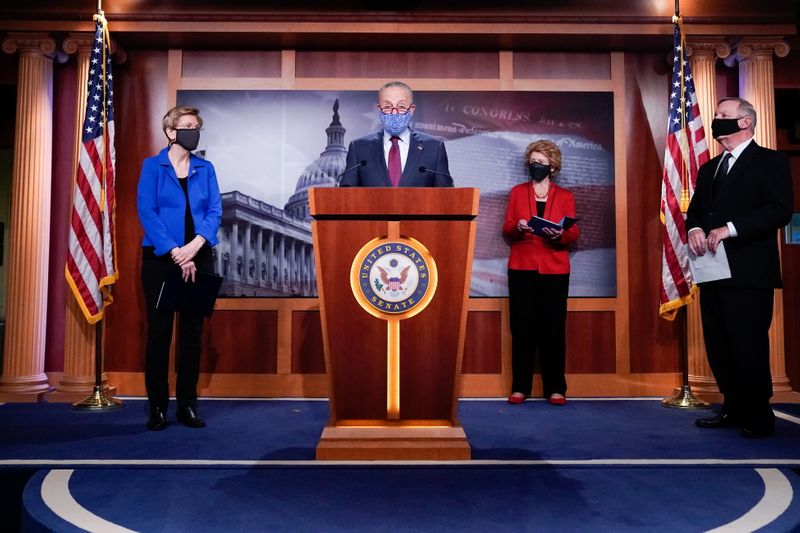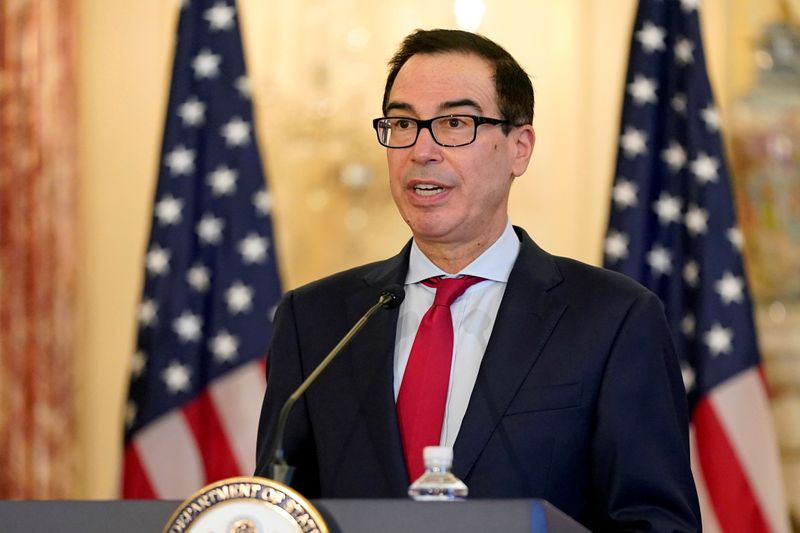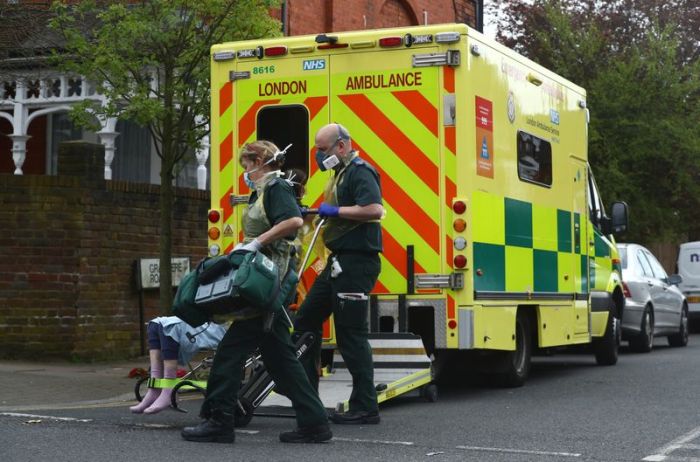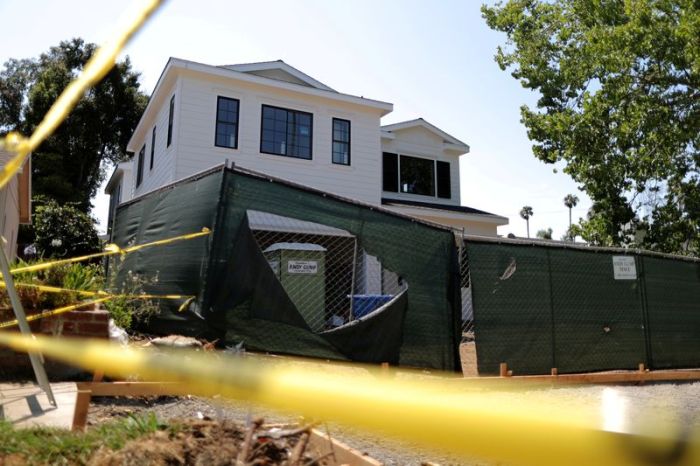WASHINGTON (Reuters) – The White House and Democrats in the U.S. Congress moved closer to agreement on a new coronavirus relief package on Tuesday as President Donald Trump said he was willing to accept a large aid bill despite opposition from his own Republican Party.
With just two weeks until the U.S. presidential election, Trump signaled a willingness to go along with more than $2.2 trillion in new COVID-19 relief, a figure Democrats have been pushing for months.
Senate Majority Leader Mitch McConnell, a Republican, publicly said he would bring up a deal if one is reached by Treasury Secretary Steven Mnuchin and Democratic House Speaker Nancy Pelosi and approved by the House of Representatives.
But he provided no timetable and privately has told his fellow Republicans that he did not favor a deal before the Nov. 3 presidential and congressional elections, a senior Senate Republican aide told Reuters.
Holding a vote on a costly new package of aid could prove politically difficult for some Senate Republicans running for re-election in conservative states.
Nonetheless, Trump, whose prospects for re-election are in doubt, tacked in the opposite direction.
“I want to do it even bigger than the Democrats,” Trump said in an interview with Fox News, as talks between Pelosi and Mnuchin continued.
Pelosi, speaking to reporters after a mid-afternoon call with Mnuchin, was asked about prospects for a legislative package by the end of this week. “I hope so. That’s the plan,” she said.
In a letter to her fellow Democrats on Tuesday evening, however, Pelosi made no mention of wrapping up the battle by week’s end. “I remain hopeful that we can reach an agreement before the election,” she wrote.
Pelosi’s deputy chief of staff, Drew Hammill, said that a 45-minute call between the speaker and Mnuchin was productive “as they move closer to an agreement.”
Hammill said on Twitter that negotiations would continue on Wednesday.
The White House has proposed $1.8 trillion in coronavirus relief, while Pelosi is pushing for $2.2 trillion.
In an interview with Bloomberg TV, Pelosi said aid to state and local governments and Republican demands for liability protection for businesses remain sticking points. But she suggested the Democrats could find grounds to agree on liability protections if the administration agrees to eliminate certain language sought by McConnell that she believes would overshadow protections for workers.
Senate Republicans have repeatedly stated their opposition to additional COVID-19 relief spending near the $2 trillion mark, focusing instead on smaller initiatives. As negotiations heated up, several were wary, non-committal or just plain negative about aid totaling $1.8 trillion or more.
“I think it’s very unlikely that a number of that level would make it through the Senate, and I don’t support something of that level,” Senator Mitt Romney told reporters. “Something far more targeted to the people who really need help, I’d like to see done, and I’d like to see done as quick as possible.”
FALL IN LINE
Trump predicted that Senate Republicans would fall in line if a broad bipartisan deal is reached. He also said he would be willing to accept a deal passed mainly with Democratic support.
“Not every Republican agrees with me, but they will,” he said. Trump added he specifically expects support from McConnell: “He’ll be on board if something comes.”
Pelosi and Mnuchin have been negotiating intermittently since August on a fresh plan to aid Americans slammed by the coronavirus pandemic, which has infected more than 8.2 million people in the country, killed over 220,000 and thrown millions out of work. Any new stimulus would be in addition to $3 trillion in relief that Congress approved earlier this year.
The head of the Association of Flight Attendants-CWA, Sara Nelson, sent a letter to members of Congress on Tuesday urging action before the election.
“Now is the time. There is no retroactivity that Congress can apply to the human toll caused by delayed relief,” she said. More than 32,000 airline workers have been furloughed while awaiting another round of aid.
The Senate also plans to vote on Wednesday on a $500 billion-plus Republican proposal to include unemployment benefits and aid to schools. It would provide people with $300 in supplemental federal weekly unemployment benefits, while the Democrats want to return to the $600 weekly level in the measure approved earlier this year.
Democrats blocked a similar Republican proposal last month, and the measure on Wednesday is also expected to fail.
(Reporting by Susan Cornwell and David Morgan; additional reporting by Doina Chiacu and Susan Heavey; Writing by Richard Cowan; Editing by Scott Malone, Rosalba O’Brien and Leslie Adler)

